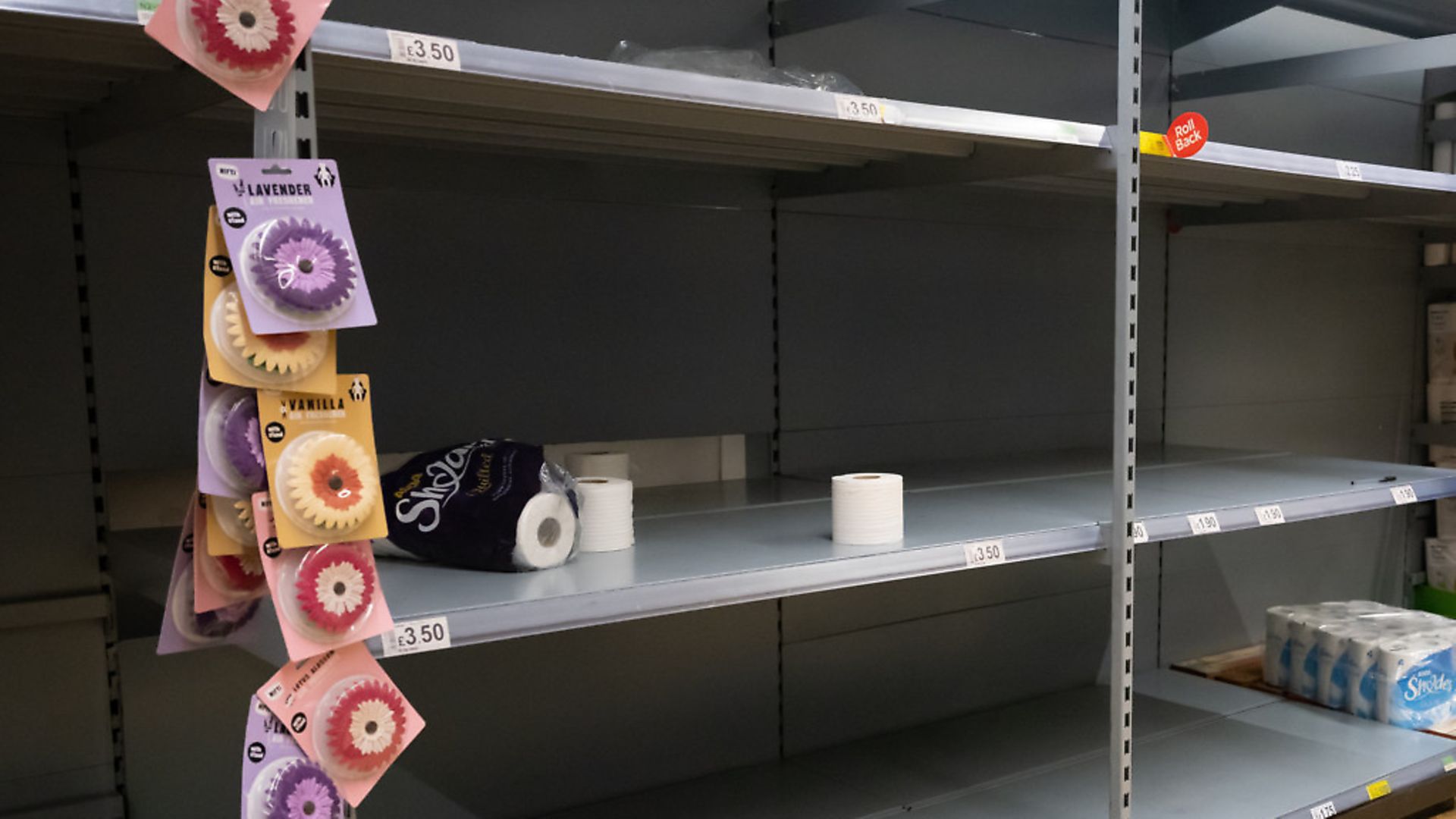
Recent news reports the world over have been littered with coverage over panic-buying to prepare for self-isolation, with toilet roll high on the list. MITCH BENN sheds light on how the clear-outs start.
I’m a big fan of the ‘discount’ supermarket chain Aldi (other Germanic discount supermarket chains are available. Well one other is anyway). I put ‘discount’ in quotes there as that slightly mis-states Aldi’s function and, for me, its appeal. It doesn’t sell all the same brands as the ‘traditional’ supermarkets at a slightly lower price, rather it sells its own separately sourced alternative brands at a far lower price.
It’s the presence of these alternative brands which make going to Aldi so much fun, as far as I’m concerned. If you’ve never been, what you’re confronted by in Aldi is shelves stocked with what appear at first glance to be the same brands stocked by everyone else but which turn out on closer inspection to be brands designed to resemble, as close as legally possible, established leading brands. Colour schemes, logos, fonts and even product names are meticulously approximated but, crucially, never out-and-out copied (one imagines Aldi have a team of trademark and copyright lawyers kepst pretty busy making sure their branding never sails too close to the wind).
The effect of this can be pleasingly surreal; it’s as if one has wandered on to the set of a movie about a supermarket, for which the film company didn’t want to shell out for the rights to any trademarks and so got the art department to run up a bunch of lookalikes, or indeed that one has somehow been bumped across to an alternate timeline, where something happened to alter the course of history in the late 20th century and a whole different range of perishable goods companies rose to be the brand leaders.
And that’s before you get to the legendarily surreal delights of The Middle Aisle, in which Aldi stocks, apparently, random items of hardware and seasonal goods. I was sorely tempted by a welder’s helmet for £24.99 a few months ago. I had no welding that needed doing but you never know when you might want to do a Daft Punk parody.
I was reminded of all this as I pushed my trolley around a branch of Aldi in order to stock up on essentials. I left half an hour or so later, having secured everything I needed, with one notable exception.
Toilet paper. The shop had been completely stripped of toilet paper.
This really is an odd one, isn’t it? I’m sure you’ve all seen the news footage of punters frantically loading trolleys with teetering stacks of multi-multi-MULTI packs of bog rolls, sometimes coming to blows over the last ones. Who was it decided that, of all the things we’re supposed to be stocking up on in these times of pestilence and contagion, the one thing that was going to save us all was not just toilet paper, but many months’ supply of toilet paper?
My better half Leslie, in a previous life, was a marketer for first one then another of the biggest supermarket chains (she’s asked me not to name them but the first two you thought of? That’s them). She explained to me a few days ago how this bizarre situation probably arose.
Supermarkets, Leslie explained, only hold as much stock as their usual patterns of demand suggest they’ll need. In particular, they’ll only order in as many big bulky items (such as multi-multi bog roll packs) as they can fit on the shelves for fear of using up all their stockroom space. If demand goes up unexpectedly, it can take a day or so to get more stock in.
All it needs, she explained, is for a small percentage of customers to buy slightly more toilet paper than usual (which is probably how it started; people stocking up in anticipation of quarantining themselves) to create a gap in supply, causing the alarming spectacle of empty shelves (since you can only get a dozen or so multi-multi bog roll packs onto the shelves of even a big supermarket, it doesn’t take much of a spike to clear them out).
Once those empty shelves have been seen, then the word goes out that ‘We’re Running Out Of Toilet Paper’, and the actual panic buying begins. Because the thing about panic buying is, everyone thinks everyone else is doing it except them. You’re not foolishly buying six months’ worth of khazi paper because you’re a big panicky numpty, you’re sensibly buying six months’ worth of khazi paper because all the other big panicky numpties are foolishly buying six months’ worth of khazi paper. So if you don’t buy all the khazi paper there will be none left for sensible people like you. See how it works?
Maybe I’m wrong. Maybe toilet paper does in fact have some extraordinary life-saving properties of which I’ve been blithely unaware. Maybe this is the way the world ends: not with a bang but with a wipe.










